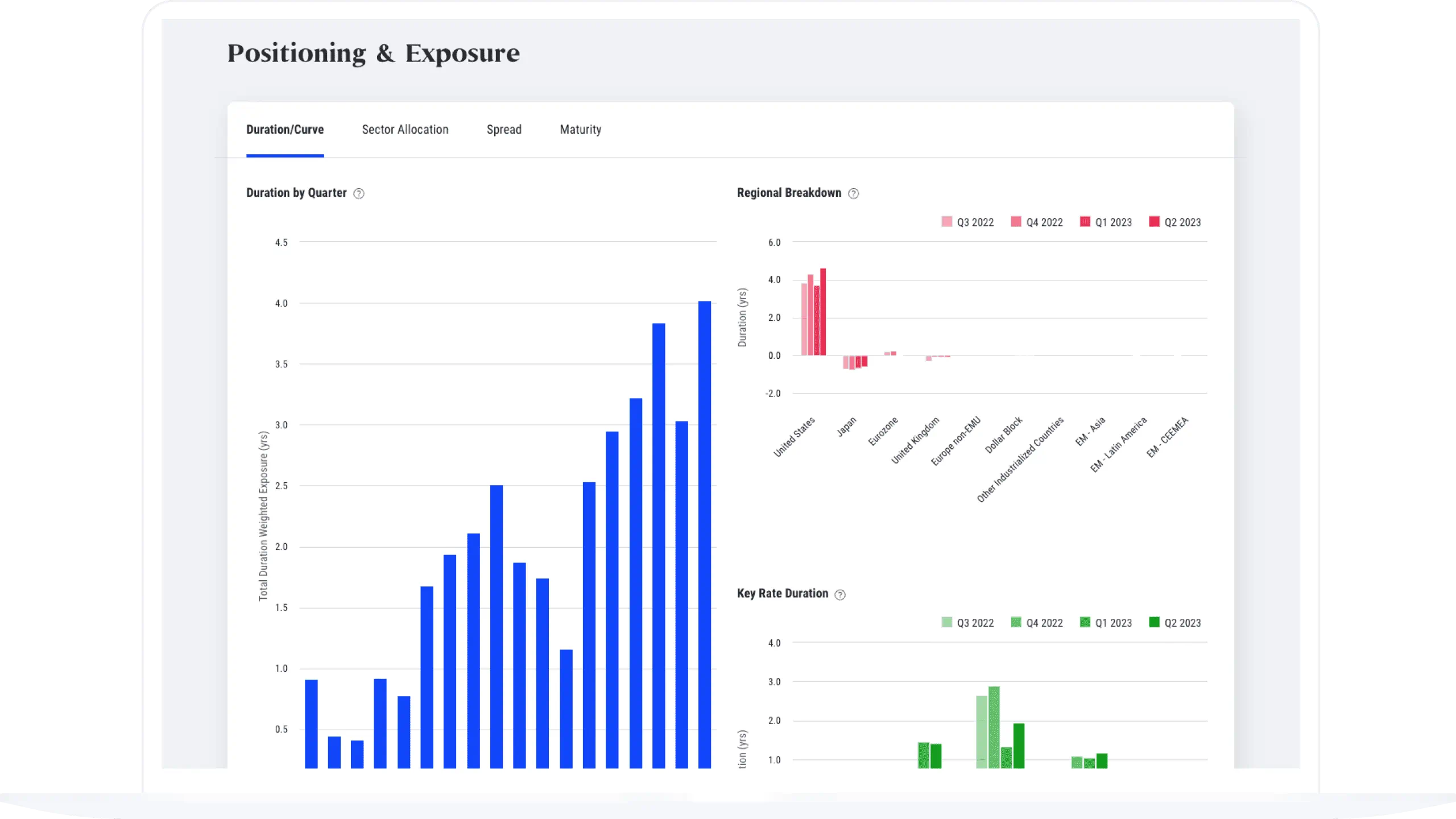No offering is being made by this material. Interested investors should obtain a copy of the prospectus, which is available from your Financial Advisor.
Commissions, trailing commissions, management fees and expenses all may be associated with mutual fund investments. Please read the prospectus before investing. Mutual funds are not guaranteed, their values change frequently and past performance may not be repeated.
Although the Fund may seek to maintain stable distributions, the Fund's distribution rates may be affected by numerous factors, including but not limited to changes in realized and projected market returns, fluctuations in market interest rates, Fund performance, and other factors. There can be no assurance that a change in market conditions or other factors will not result in a change in the Fund's distribution rate or that the rate will be sustainable in the future.
For instance, during periods of low or declining interest rates, the Fund's distributable income and distribution rate may decline for many reasons. For example, the Fund may have to deploy uninvested assets (whether from purchases of Fund units, proceeds from matured, traded or called debt obligations or other sources) in new, lower yielding instruments. Additionally, payments from certain instruments that may be held by the Fund (such as variable and floating rate securities) may be negatively impacted by declining interest rates, which may also lead to a decline in the Fund's distributable income and distribution rate.
Funds typically offer different series, which are subject to different fees and expenses (which may affect performance), having different minimum investment requirements and are entitled to different services.
Investing in the bond market is subject to risks, including market, interest rate, issuer, credit, inflation risk, and liquidity risk. The value of most bonds and bond strategies are impacted by changes in interest rates. Bonds and bond strategies with longer durations tend to be more sensitive and volatile than those with shorter durations; bond prices generally fall as interest rates rise, and low interest rate environments increase this risk. Reductions in bond counterparty capacity may contribute to decreased market liquidity and increased price volatility. Bond investments may be worth more or less than the original cost when redeemed. Investing in foreign denominated and/or domiciled securities may involve heightened risk due to currency fluctuations, and economic and political risks, which may be enhanced in emerging markets. Mortgage- and asset-backed securities may be sensitive to changes in interest rates, subject to early repayment risk, and while generally supported by a government, government-agency or private guarantor, there is no assurance that the guarantor will meet its obligations. High-yield, lower-rated, securities involve greater risk than higher-rated securities; portfolios that invest in them may be subject to greater levels of credit and liquidity risk than portfolios that do not. Commodities contain heightened risk, including market, political, regulatory and natural conditions, and may not be appropriate for all investors. Equities may decline in value due to both real and perceived general market, economic and industry conditions. Investing in distressed companies (both debt and equity) is speculative and may be subject to greater levels of credit, issuer and liquidity risks, and the repayment of default obligations contains significant uncertainties; such companies may be engaged in restructurings or bankruptcy proceedings. Convertible securities may be called before intended, which may have an adverse effect on investment objectives. Entering into short sales includes the potential for loss of more money than the actual cost of the investment, and the risk that the third party to the short sale may fail to honor its contract terms, causing a loss to the portfolio. Currency rates may fluctuate significantly over short periods of time and may reduce the returns of a portfolio. Derivatives may involve certain costs and risks such as liquidity, interest rate, market, credit, management and the risk that a position could not be closed when most advantageous. Investing in derivatives could lose more than the amount invested. Please refer to the Fund’s prospectus for a complete overview of the primary risks associated with the Fund.
There is no guarantee that these investment strategies will work under all market conditions or are appropriate for all investors and each investor should evaluate their ability to invest long-term, especially during periods of downturn in the market.
As of 31 August 2024. ©2024 Morningstar, Inc. All Rights Reserved. The information contained herein: (1) is proprietary to Morningstar; (2) may not be copied or distributed; and (3) is not warranted to be accurate, complete or timely. Neither Morningstar nor its content providers are responsible for any damages or losses arising from any use of this information.
Monthly Morningstar Rating™ for the PIMCO Monthly Income Fund (Canada) Series F, PIMCO Canadian Core Bond Fund Series F and PIMCO Managed Core Bond Pool Series F units; other units may have different performance characteristics.
The PIMCO Monthly Income Fund (Canada) Series F was rated against the following numbers of Multi-Sector Fixed Income category over the following time periods: Overall 5 Stars (260 funds rated); 1 Yrs. 3 Stars (274 funds rated); 3Yrs. 4 Stars (260 funds rated); 5Yrs. 4 stars (223 funds rated).
The PIMCO Canadian Core Bond Fund Series F was rated against the following numbers of Canadian Fixed Income category over the following time periods: Overall 4 Stars (483 funds rated); 1 Yrs. 4 Stars (520 funds rated); 3Yrs. 3 Stars (483 funds rated); 5Yrs. 4 stars (428 funds rated); 10yrs. 4 stars (275 funds rated).
The PIMCO Managed Core Bond Pool Series F was rated against the following numbers of Global Fixed Income category over the following time periods: Overall 4 Stars (345 funds rated); 1 Yrs. 5 Stars (473 funds rated); 3Yrs. 4 Stars (345 funds rated).
The Morningstar Rating™ is calculated from a fund’s 3, 5, and 10-year returns measured against a peer group of similar funds. Morningstar rates funds from one to five stars based on how well they’ve performed (after adjusting for risk) in comparison to their peer group. The top 10% of products in each product category receive 5 stars, the next 22.5% receive 4 stars, the next 35% receive 3 stars, the next 22.5% receive 2 stars, and the bottom 10% receive 1 star. Funds are rated for up to three time periods— three-, five-, and 10 years—and these ratings are combined to produce The Overall Morningstar Rating™. Funds with less than three years of history are not rated. The Morningstar Rating™ is based on an objective, mathematical calculation and is not to be construed as an endorsement of any fund(s). A rating is not a recommendation to buy, sell or hold a fund and ratings are subject to change monthly. Past performance is no guarantee of future results. A rating is not a recommendation to buy, sell or hold a fund. For additional information please visit, www.morningstar.ca/
The products and services provided by PIMCO Canada Corp. may only be available in certain provinces or territories of Canada and only through dealers authorized for that purpose. PIMCO Canada has retained PIMCO LLC as sub-adviser. PIMCO Canada will remain responsible for any loss that arises out of the failure of its sub-adviser.
PIMCO Canada Corp. 199 Bay Street, Suite 2050, Commerce Court Station, P.O. Box 363, Toronto, ON, M5L 1G2, 416-368-3350
PIMCO as a general matter provides services to qualified institutions, financial intermediaries and institutional investors. Individual investors should contact their own financial professional to determine the most appropriate investment options for their financial situation. This material contains the current opinions of the manager and such opinions are subject to change without notice. This material has been distributed for informational purposes only and should not be considered as investment advice or a recommendation of any particular security, strategy or investment product. Information contained herein has been obtained from sources believed to be reliable, but not guaranteed. No part of this material may be reproduced in any form, or referred to in any other publication, without express written permission. PIMCO is a trademark of Allianz Asset Management of America LLC in the United States and throughout the world.













